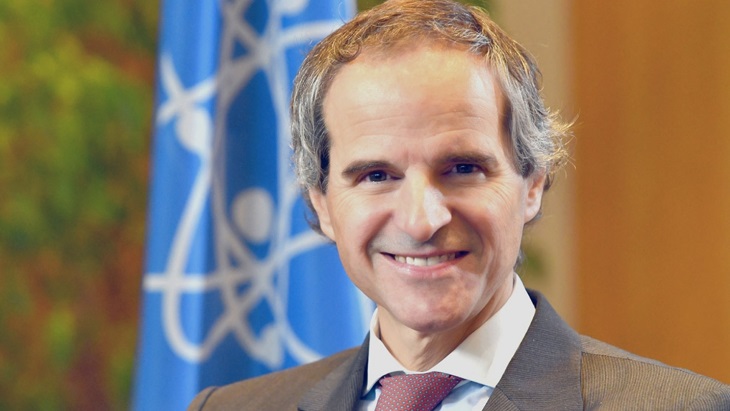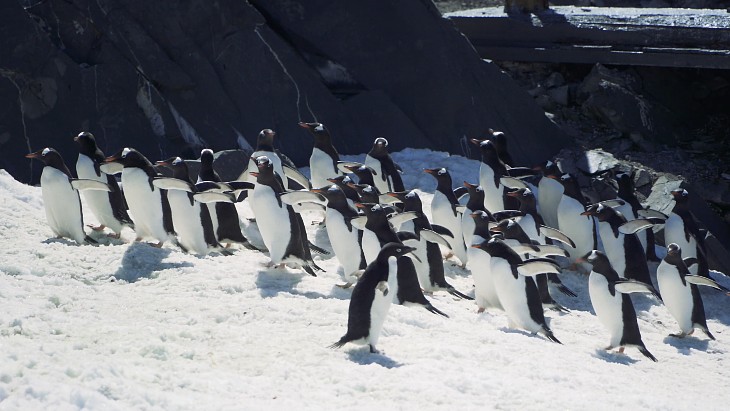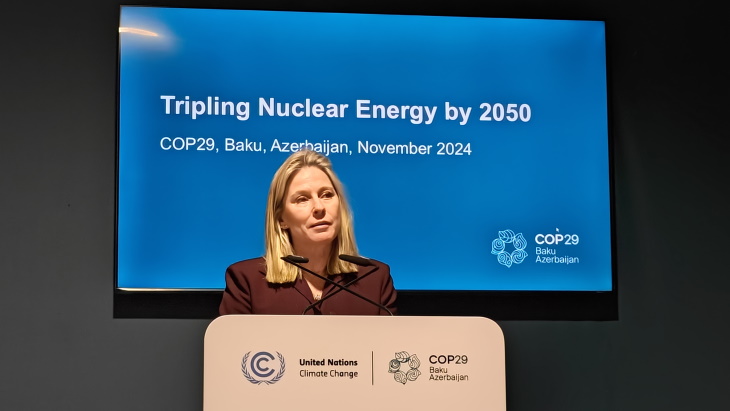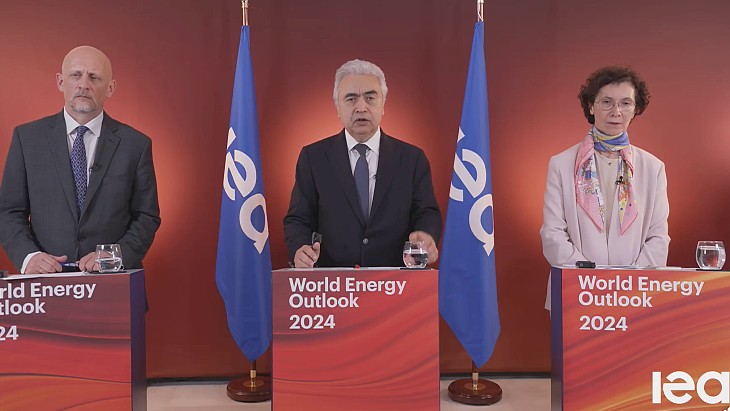IAEA 'encouraged and enthusiastic' about COP26, says Grossi

During his candidacy for the post of IAEA Director General, Grossi - then Argentina's Ambassador to Austria and the country's Permanent Representative to the Vienna-based International Organisations - had said the agency must be involved in the debate about nuclear.
"I was quite clear on the importance that the agency fills the space it should have when it comes to addressing issues related to nuclear energy," he said during a Nuclear 2 Net Zero interview with Jeffrey Donovan of the IAEA Department of Nuclear Energy.
Grossi attended COP25 in Madrid in December 2019, marking his first official trip since taking office just days earlier. "I felt we had to make our voice heard without exaggeration, without over-doing it or over-playing it," he said. "We certainly, just as nuclear energy, have a role to play or have a seat around the table of these energy debates."
He said that these large, important conferences have been "if not indifferent, sometimes averse or hostile" towards nuclear energy. "Talking to the choir is easy. One has to go and pass the message and try to be heard and understood by all those, in goodwill and with good faith, that want to engage in the conversation."
Speaking of his experience at COP25, Grossi said: "There was a new voice. Sometimes I think we were at least able to awaken some curiosity about the message of nuclear energy in view of the narratives and impressions about nuclear energy that have been common currency in the past few decades."
Better prepared
However, he said the IAEA is more prepared for COP26. "We are very encouraged and enthusiastic about this conference. I think it will provide us with a unique opportunity. Much as COP25 was a first in a way, for the agency and for me, to be there this time we are better prepared."
The IAEA aims to promote the discussion of nuclear issues from "a double angle". "On the one hand referring to energy, to electricity generation with nuclear and how this can be an articulator of balanced energy grids and energy mixes in future. Also by looking at nuclear technologies and applications that are useful in the mitigation side of the debate."
Noting changes that have taken place since COP25, Grossi said there have been a number of "very clear" targets set by the international community, together with political commitments. "I think one has to be ambitious and clear in the setting of targets which will be the way in which you measure your success or lack thereof. But one thing is clear. Once you have set a target - in this case net-zero emissions by 2050 - then you work the calendar backwards and you start making your calculations.
"Then this is hard-science and one sees that to get there a certain combination, a certain number of mixes - because there is no single one - is the only viable way to get to that situation. In all of them, nuclear is part of the equation."
He sometimes finds it annoying, when speaking to world leaders, that they agree nuclear energy is part of the solution but are unable to say so publicly. "This is our challenge. We shouldn't get angry or frustrated. We should think why this is so and why isn't it possible to move. But in doing so, we have to recognise that perhaps even ourselves were not so assertive in the past, so why would others that were not even working in the area be prepared to take the risks of hostile public opinion about the issue."
Hard facts
"It's about looking at the hard facts. Let's always look at the hard facts. But even that is not obvious in an age of fake news, social media or the fact that any individual constructs reality and produces content. There are deformations of the truth that happen all the time."
Donovan noted there is a certain hesitancy by those countries already using nuclear energy to discuss its contribution as a low-carbon "building block" in their energy mix.
Grossi said the IAEA can encourage those countries to be more vocal by talking about communication and social acceptance. "But there is also another and very effective way to do that. This is by helping them make nuclear safe and secure."
Speaking about nuclear's role in the post-COVID economic recovery, Grossi said: "There is recognition in many countries that we are not going to make it without nuclear, at the same time that nuclear is a formidable platform for better recovery as we are all involved with after the pandemic. Nuclear is here and will continue to be here, and we will be happy to take part in this fantastic global effort."
The full podcast can be found here.

_99697.jpg)








_88592.jpg)

